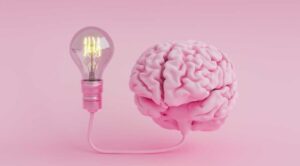Happy March 22nd World Water Day. This week we will focus on the important effects of water on the brain, which is of great importance for almost every living thing on earth. First of all, we will talk about the history of World Water Day. The resolution adopted by the United Nations in 1993 is an important step to focus on the growing problem of clean water worldwide. With this resolution, March 22nd was declared as World Water Day. World Water Day aims to bring the international community together to take concrete steps to protect and increase potable water resources. This special day emphasizes that water should be treated not only as a resource, but also as a human right and a source of life. It is important to promote global cooperation to reduce the impacts of water crises, effectively manage water resources and make water access equitable and sustainable for all. These efforts are critical to ensure a livable world for future generations.
The brain, like other organs in the body, is in constant need of water. Hydration supports brain function and maintains the health of brain tissue. Adequate water consumption ensures that brain cells function properly. We also know that most of our body is filled with water. But it can be really surprising to learn that 78-80% of our brain is made up of water. The fact that the gray-white and hard-looking structure is mostly made up of water further emphasizes the importance it plays in protecting the brain. Water is so important for the brain because it is an organ that is heavily dependent on water. Water maintains the electrolyte balance in the body, which is essential for nerve conduction. Electrolytes are important to ensure proper communication of nerve cells. Inadequate water intake can affect nerve conduction and weaken communication between the brain and the body.
Water is critical for the brain to be resistant to external impacts. A hard structure, such as the skull, acts as a shield against these impacts. But a hard skull is not enough; the fluids surrounding the brain are also important for absorbing and dissipating impacts. This is one of the primary roles of the water in our brains: Absorbing impacts. The fluid environment of the brain protects brain tissue while absorbing impacts. These fluids protect the brain tissue from jarring impacts and minimize brain damage. In this way, not only the protection provided by the skull is important, but also the support provided by the fluid-filled environment.
Dehydration also affects psychological activities in the brain. In particular, it can sometimes lead to mental health problems such as mental fogginess, stress and tension. Adequate water consumption is essential for mental health and brain health. In summary, we all know how important water is in life activities. However, we sometimes forget this in the rush of everyday life. We will eagerly continue to remind you of such important but everyday information.
Reference: Psychologist Merve Altındağ
Ç. M. Bakırcı. Su Dolu Beyin: Su, Beynimiz İçin Neden Önemli?. (24 Şubat 2013). Alındığı Tarih: 20 Mart 2024. Alındığı Yer: https://evrimagaci.org/s/1023
DEDEKAYOĞULLARI, H., & Ayşe, Ö. N. A. L. (2011). ÇEVRE-İNSAN SAĞLIĞI İLİŞKİSİ AÇISINDAN SU VE SU ANALİZİNİN ÖNEMİ. Journal of Istanbul Faculty of Medicine, 72(2), 65-70.




